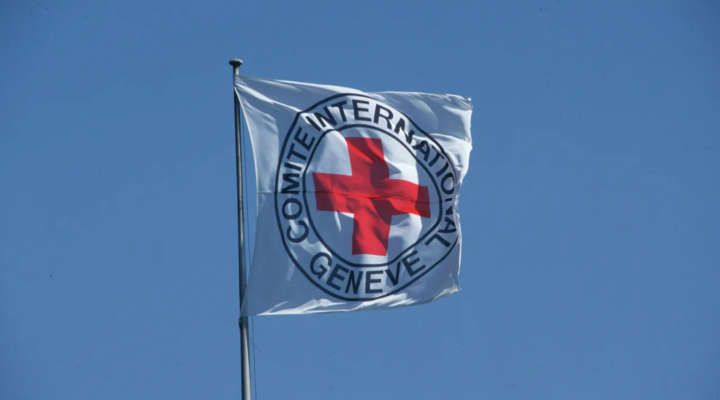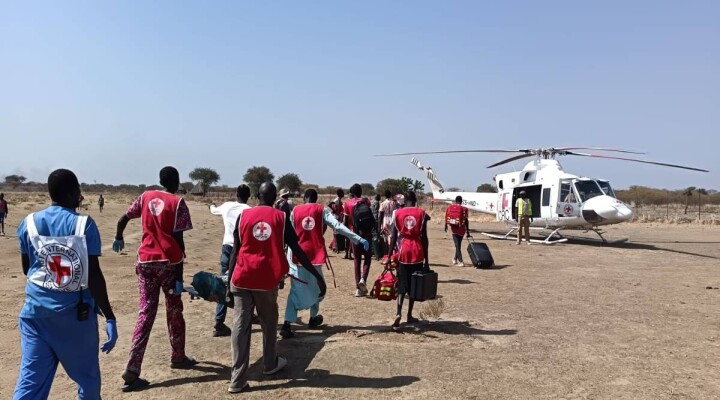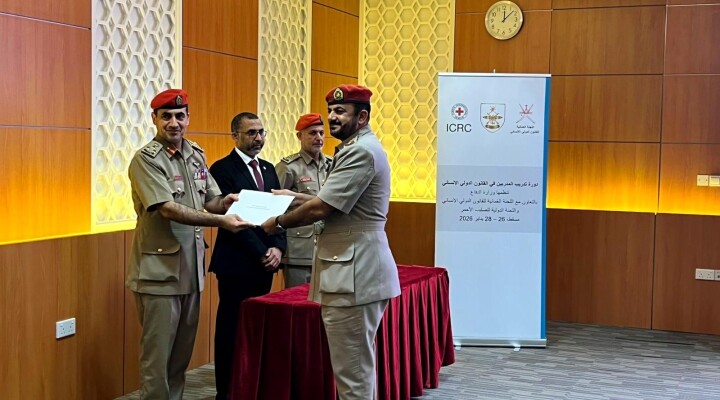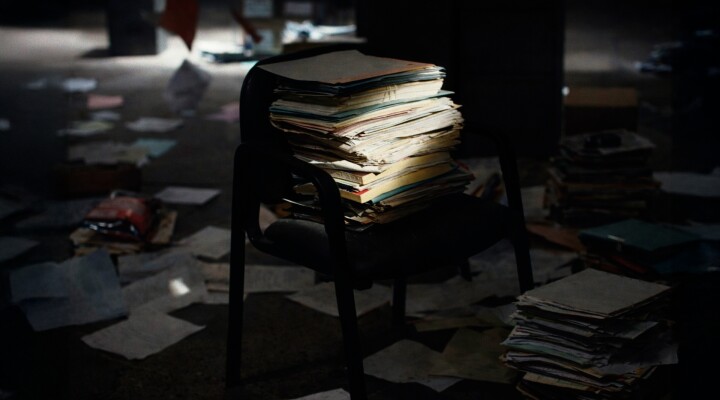Syria: One month after massive earthquake, scale and gravity of needs require urgent action to avoid devastating humanitarian consequences
The scale and the gravity of the needs left in the wake of the massive earthquake that struck northwest Syria one month ago require urgent action to avoid devastating humanitarian consequences in a region already struggling to cope with the effects of more than a decade of conflict
The earthquake further damaged the region’s aging water system, putting it under new pressure that increases concerns of a possible collapse, a risk that could lead to new public health challenges. Thousands of people sought temporary shelter after the earthquake, leading to difficult living and sanitation conditions in Aleppo, Hama and Lattakia. At one temporary shelter site in Aleppo, 850 people are sharing seven toilets. At another site, in a former cement factory, children play ball close to areas contaminated by unexploded ordnances.
On the morning of the earthquake, ICRC teams delivered kits of medical supplies to Aleppo hospitals only hours after the quake hit. Since then, over 57,000 people in the affected areas have benefited from health assistance from the ICRC and Syrian Arab Red Crescent. They also provided water for people at six shelters in Aleppo and provided relief assistance to over 30,000 people that included food and essential items.
In 2022, the ICRC supported the rehabilitation of 32 water facilities across the country and more than 17 million people across Syria benefited from different water-related interventions. In recent years, the ICRC carried out, along with the Syrian Arab Red Crescent, thousands of engineering projects tackling water and sanitation systems across Syria aiming to provide sustained support to local service providers to curb the decline in service delivery across the country.
More on ICRC’s earthquake response:
Over the last four weeks, ICRC has been working together with the Syrian Arab Red Crescent (SARC) to respond to the needs of earthquake survivors in the last four weeks, including:
- Water trucking for six collective shelters in Aleppo for 10 days. Around 115,000 water bottles were distributed in in Aleppo, Latakia and Hama.
- Light rehabilitation for 24 collective shelters that have hosted the earthquake-affected families in Aleppo.
- Donated generators to three bakeries in affected areas in Latakia, which enable those bakeries to produce bread for around 200,000 people.
- More than 57,000 people in the affected areas are benefiting from different health support activities.
- 1,000 body bags were delivered to hospitals and forensics facilities in Aleppo and Latakia.
- Surgical medicines, medical supplies and equipment were donated to six hospitals in Aleppo, Latakia and Hama.
- The ICRC supported SARC mobile health units to provide basic health services/first aid to people in collective shelters in Aleppo, Latakia and Hama.
- More than 30,000 peoplereceived canned food and relief items in collective shelters in Aleppo, Latakia and Hama, including blankets, mattresses, solar lights, hygiene kits, and kitchen sets.
SHOTLIST
Filming: February 2023
Location: Syria
Copyright: ICRC access al
On Screen Credit: ICRC written or logo
|
Arabic |
Time code |
English |
|
موظف من اللجنة الدولية للصليب الأحمر مع المتضررين من الزلزال في اللاذقية |
00:02 00:09 |
ICRC employee in field with affected people surrounded by destruction of buildings in Latakia |
|
زيارة موظفو اللجنة الدوليّة للصليب الأحمر إلى مستشفى الراضي في حلب |
00:09 00:25 |
ICRC Stuff in Al-Razi hospital in Aleppo |
|
مقاطع للمباني المدمرة على إثر الزلزال في اللاذقية |
00:25 00:36 |
Rushes of Latakia destruction after the earthquake |
|
شاحنات اللجنة الدوليّة للصليب الأحمر في حلب |
00:37 00:49 |
ICRC trucks driving in Aleppo. |
|
سوريون اتخذوا من مسجد مكانًا للبقاء بعد الزلزال في حلب |
00:49 01:00 |
People sheltering in a mosque after the earthquake in aleppo |
|
حُطام المباني بعد الزلزال في حلب |
01:01 01:14 |
Collapsed buildings in Aleppo |
|
استجابة اللجنة الدوليّة في حلب بالمساعدات الإنسانيّة |
01:14 01:33 |
ICRC Water & Habitat response in Aleppo with humanitarian aids |
|
مساعدات اللجنة الدوليّة بالمستلزمات الطبية في حلب |
01:33 01:47 |
ICRC Health interventions in Aleppo |
|
مخزن اللجنة الدوليّة للصليب الأحمر في الأردن أثناء إعداد شُحنة المساعدات إلى سورية عقب الزلزال |
01:47 02:16 |
ICRC warehouse in Jordan during the preparation for aids to Syria after the earthquake |
For more information, please contact:
Adnan Hizam, ICRC Damascus, ahizam@icrc.org or +963 113 380 6205
Imene Trabelsi, ICRC Beirut, itrabelsi@icrc.org or +961 3 13 83 53
Fatima Sator, ICRC Geneva, fsator@icrc.org or +41 79 848 49 08
Jessica Moussan, ICRC Dubai, jmoussan@icrc.org or +971 50 425 4091
Established in 1863, the ICRC operates worldwide helping people affected by conflict and armed violence and promoting the laws that protect victims of war. A neutral, independent and impartial organization, its mandate stems from the Geneva Conventions of 1949.



